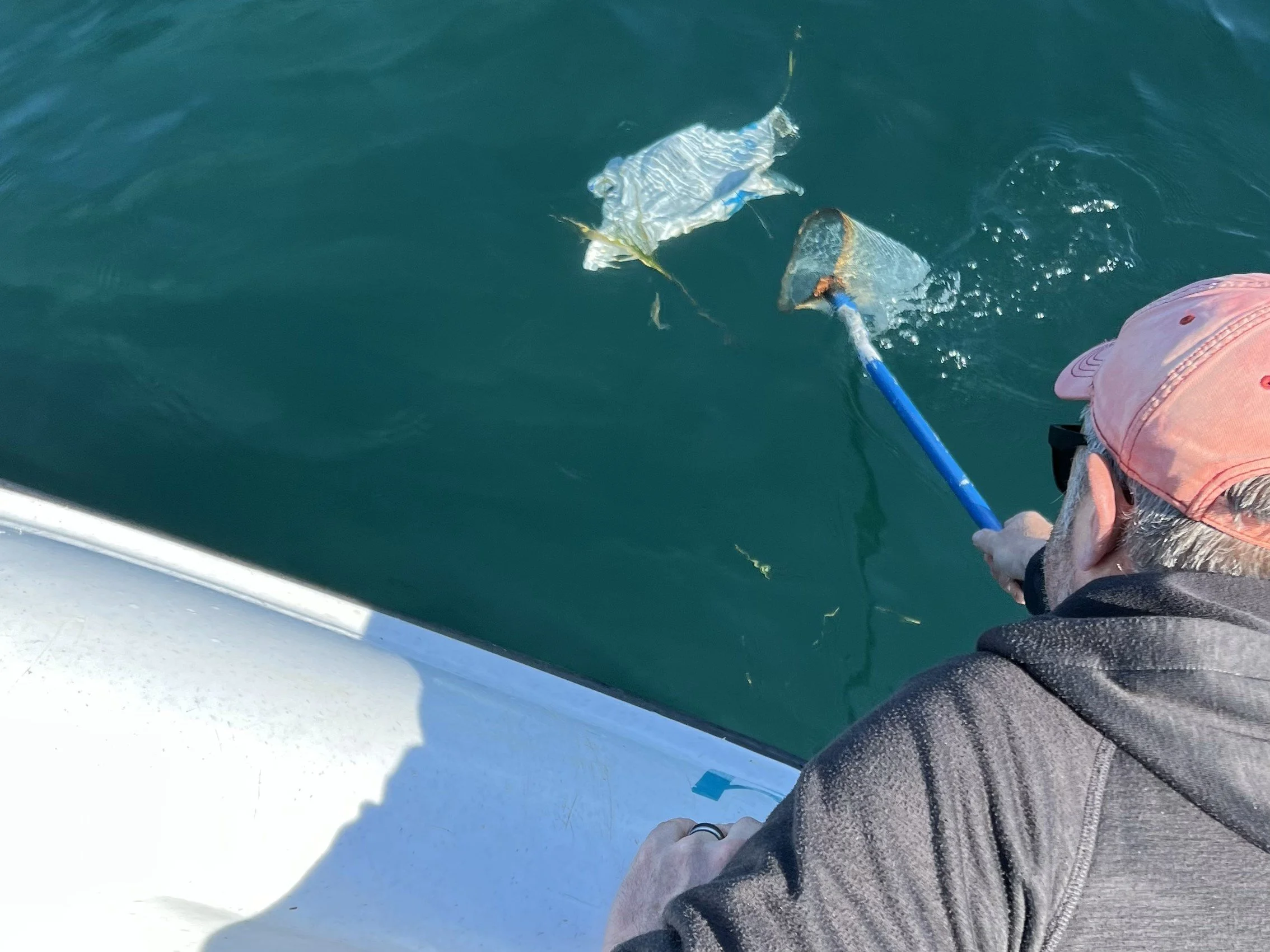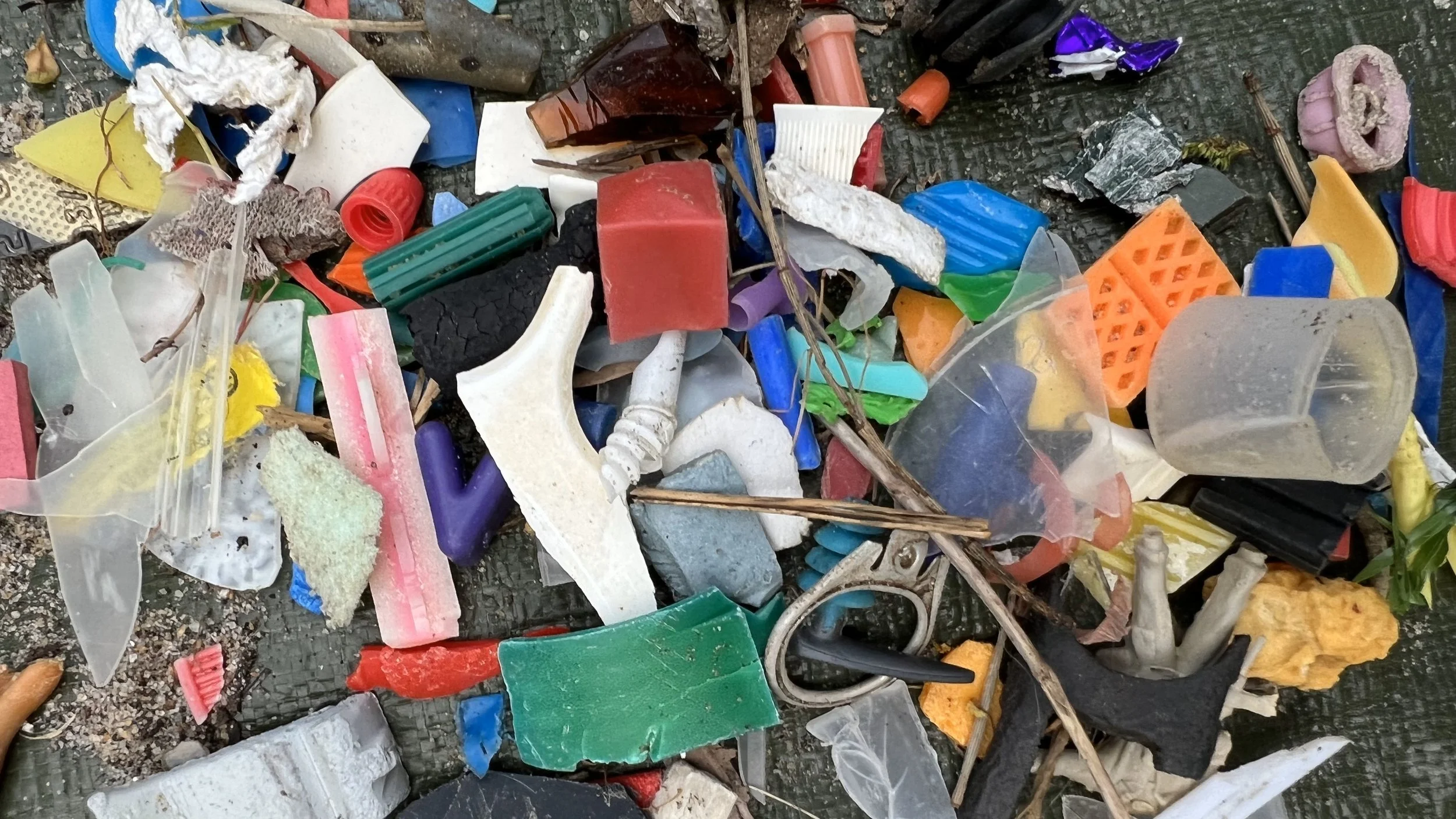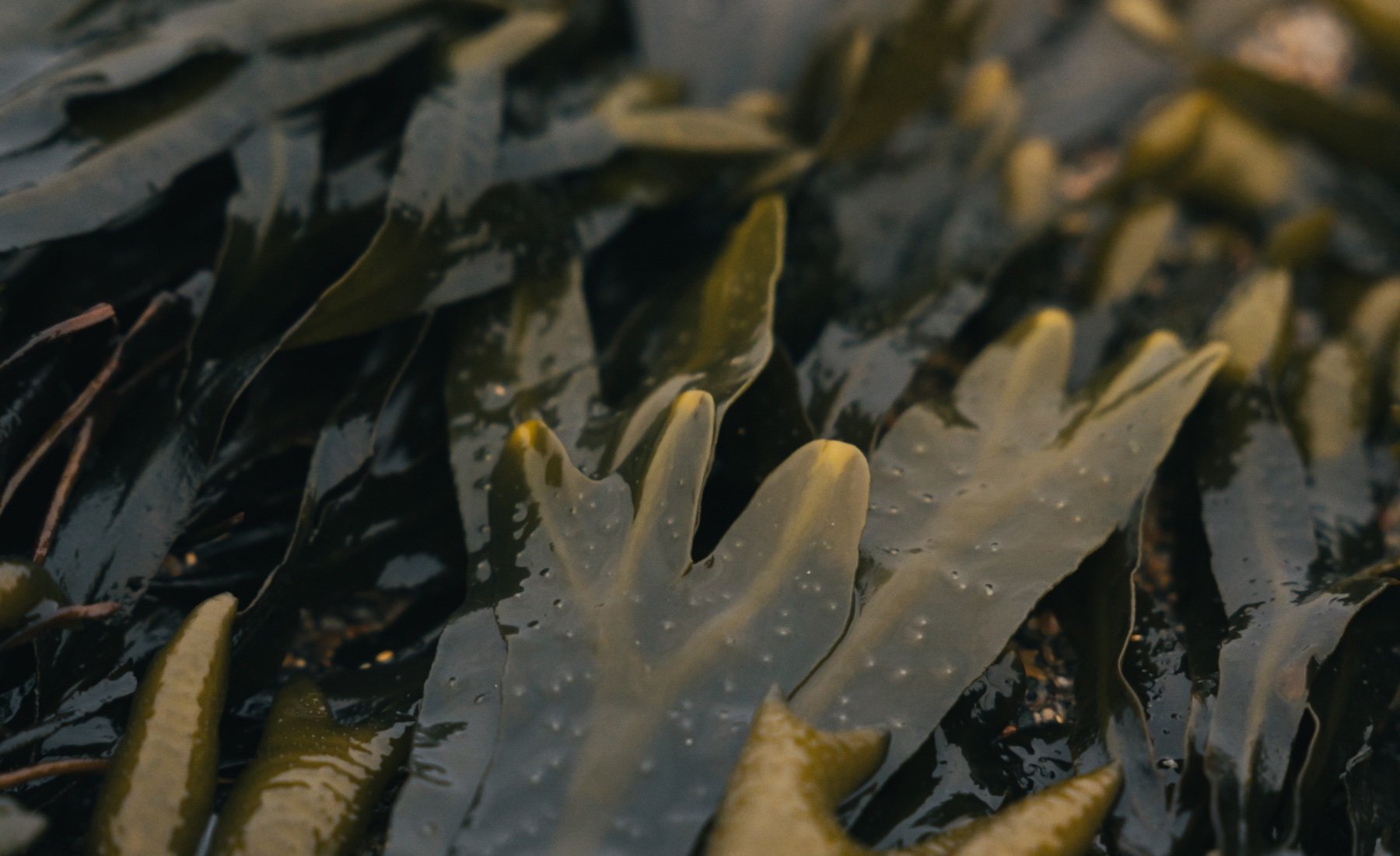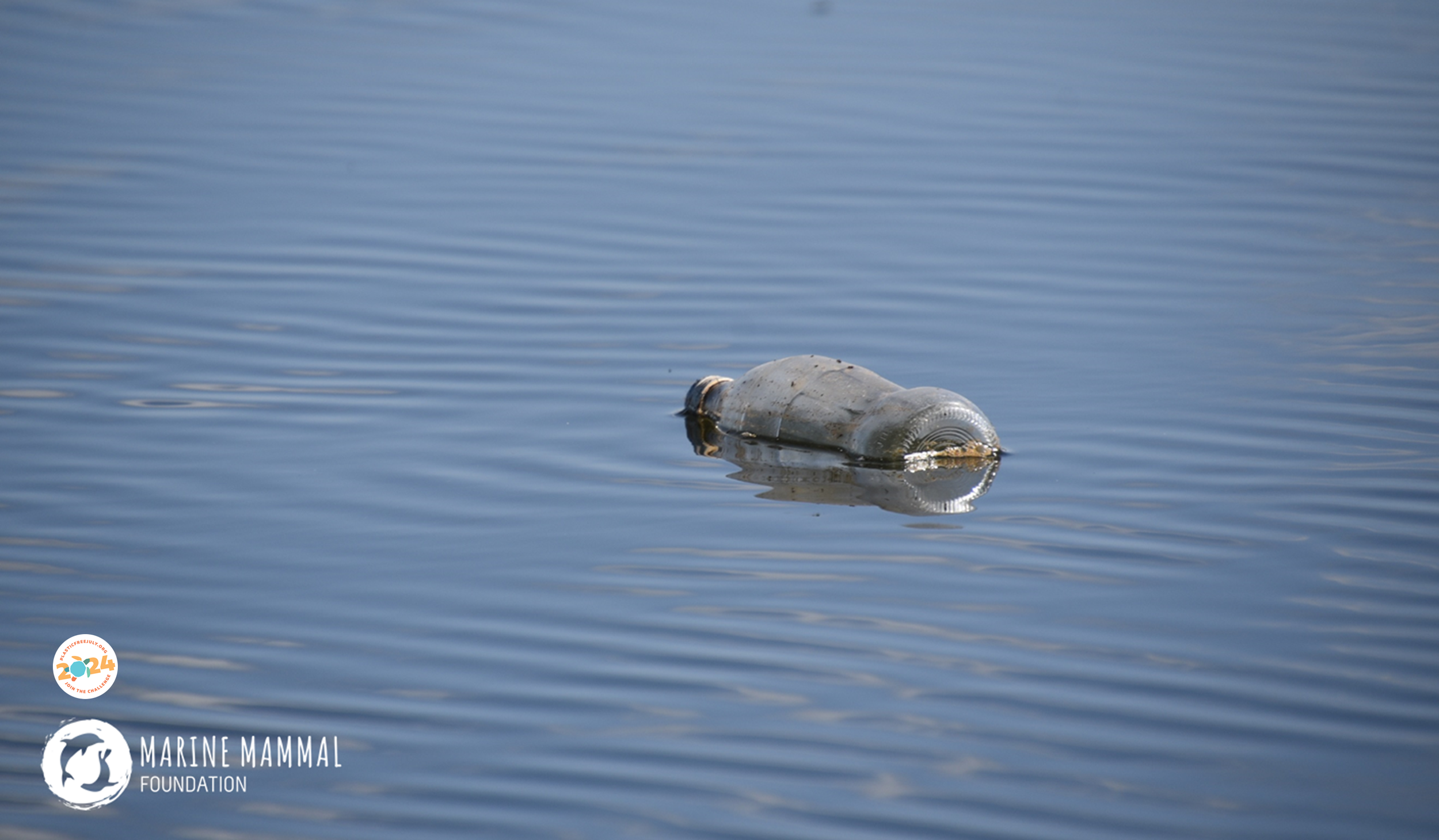Tackling the Plastic Tide: Global Efforts and Innovations
Written by Holly Reeves, MMF Volunteer
As we reach the end of another Plastic Free July, it's a critical time to reflect on our relationship with plastic and consider our efforts beyond the month. With an estimated 130,000 tonnes of plastic entering our oceans annually, it’s clear that the plastic issue is widespread and urgent. From floating garbage patches in the Pacific to microplastics detected in the deepest ocean trenches, the plastic crisis affects every corner of our planet. Understandably, surveys indicate that the majority of the Australian public is highly concerned about marine plastic pollution. But there is hope! Communities, innovators, and governments across the globe are uniting in unprecedented ways to turn the tide against plastic pollution. In line with the Plastic Free July theme for 2024, ‘Small steps, big difference’, let's take a look at the global efforts being made.
Global Action
Around the world, countries, organizations, and individuals are stepping up to fight plastic pollution. Here are some of the key global actions being taken:
1. National policies
Many countries are pivoting towards a circular economy, where materials are reused, repaired, and recycled rather than discarded. Policies such as extended producer responsibility (EPR) schemes, which make manufacturers responsible for the entire lifecycle of their products including disposal, are at the heart of a circular economy. An example of an EPR policy is the Container Deposit Scheme, which was finally introduced to Victoria in 2023. Following recent announcements from the Australian government to introduce new national packaging laws and improve recycling operations, these actions are a great step towards meeting circular economy goals.
2. Reducing plastic production
Although producers are often quick to place responsibility for plastic pollution on consumers by promoting recycling, this approach must be coupled with broader, industry-level efforts. Approximately only 12% of plastic waste in Australia is currently recycled. With 56 companies being responsible for over half of branded plastic pollution, reducing plastic at the industry level could make a significant difference for our environment. A number of innovative companies and startups are racing to develop plastic alternatives or introduce new ways to recycle existing plastic waste.
3. International plastics treaty
On a broader scale, in 2022 the United Nations committed to develop an international treaty to address plastic pollution. The framework aims to set global standards, promote sustainable alternatives and coordinate efforts to reduce plastic waste. While the negotiations of the treaty are still underway, there’s no doubt that an internationally unified strategy is crucial to combatting plastic pollution.
4. Cleanup efforts
While reducing plastic production at the source is essential to halting pollution, a number of organisations help mitigate the waste load to our environment through cleanup efforts. For example, between 2019 and 2024, the Ocean Cleanup reportedly removed 10mn kg of waste from the Great Pacific Garbage Patch and rivers across the globe.
Innovations
Innovations in science and technology offer promising pathways to address the plastic crisis. Although plastics are accumulating at rapid rates in our environment, funding for waste management and plastic alternatives has increased substantially in recent years. From converting plastic waste into essential hydrocarbons to a self-digesting plastic, some of the most promising developments include:
1. Seaweed-Based Plastics
One of the most promising alternatives to conventional plastics is derived from a natural source hiding right under our noses – seaweed. Companies like Notpla and Uluu have already begun selling these seaweed-derived polymers to manufacturers, offering a viable, biodegradable alternative to traditional plastics for product packaging.
2. Plastic-Eating Microorganisms
Nature offers some unexpected solutions to the plastic crisis. In 2024, scientists discovered a plastic-eating marine fungi, Parengyodontium album, breaking down plastic waste in the Great Pacific Garbage Patch. Importantly, this doesn’t mean we can just leave the plastic problem for nature to resolve – while certain organisms are evolving to consume plastics, this will be an extremely slow process. However, it does give scientists a helping hand to identify microorganism candidates for bioengineering. For example, researchers at the University of San Diego were recently able to design a self-digesting plastic using bacteria Bacillus subtilis.
3. Plastic Transformation
Microorganisms can also be utilised to transform plastic waste into useful materials. For example, researchers at Rensselaer Polytechnic Institute successfully altered the genes of a plastic-eating bacteria, Pseudomonas aeruginosa, to transform plastic waste into a spider silk-like protein. Meanwhile a Dutch startup, BioBTX, formulated a process to convert plastic waste into hydrocarbons, essential chemicals used for a broad range of purposes from drug production to fuel.
4. Advanced Recycling Technologies
Innovations in recycling can help tackle the plastic waste crisis and advance circular economy efforts. While efforts to reduce plastic production and waste should come first, chemical and enzymatic recycling can play a valuable role by breaking down plastics in a more sustainable and energy-efficient manner than traditional mechanical recycling.
5. New Materials
Given plastics play such a prominent role in our everyday lives, researchers are constantly seeking to identify and invent new plastic alternatives. Recently a research engineer from California, USA used cereal and flax straw to create drinking straws that decompose, as an alternative to mushy paper straws. While alternatives to common single-use products such as straws are frequently spotlighted, researchers are also developing much-needed substitutions for plastic in other essential items such as sanitary products.
What You Can Do
With the average Australian producing approximately 100kg of plastic waste each year, there’s no doubt that each of us has a role to play in combatting the plastics problem! Let’s consider some ways you can join the fight against plastic pollution:
1. Reduce Single-Use Plastics
Single-use plastics make up a substantial proportion of plastic waste. Instead, consider opting for reusable alternatives to everyday items such as water bottles, shopping bags, and cutlery. The Plastic Free July website is worth visiting for some helpful advice on how to reduce your plastic consumption.
2. Choose Sustainable Alternatives
Sustainable products such as bamboo toothbrushes, beeswax wraps, and reusable shopping bags make excellent replacements for their plastic counterparts, and supporting companies that prioritize sustainability encourages a market shift towards eco-friendly options. Consider visiting our MMF Store for some inspiration.
3. Participate in Cleanup Efforts
Many organizations such as BeachPatrol or Clean Up Australia regularly host beach and street cleanups. Volunteering for these causes is a great opportunity to make a direct impact on plastic reduction, raise awareness about the importance of keeping waterways clean and connect with your local community.
4. Educate and Advocate
Change begins with one voice at a time. By sharing information about reducing plastic consumption with friends, family, and even your local community or businesses, you can encourage others to adopt plastic-free practices. If you would like to take a step further, you can make a big difference by reaching out to your local representatives or signing petitions to support environmental legislation and initiatives.
The Journey Ahead
The journey to a plastic-free future is challenging, but not impossible. With every piece of plastic we refuse, every new technology we support, and every policy we advocate for, we move closer to a world where our oceans are free from plastic pollution.
At MMF, we witness firsthand the impacts of plastic pollution on our marine life and ecosystems, but we also see the incredible impact of collective action. This Plastic Free July, let's celebrate the progress we've made and ride the wave of change to ensure a healthier, sustainable planet for generations to come.













